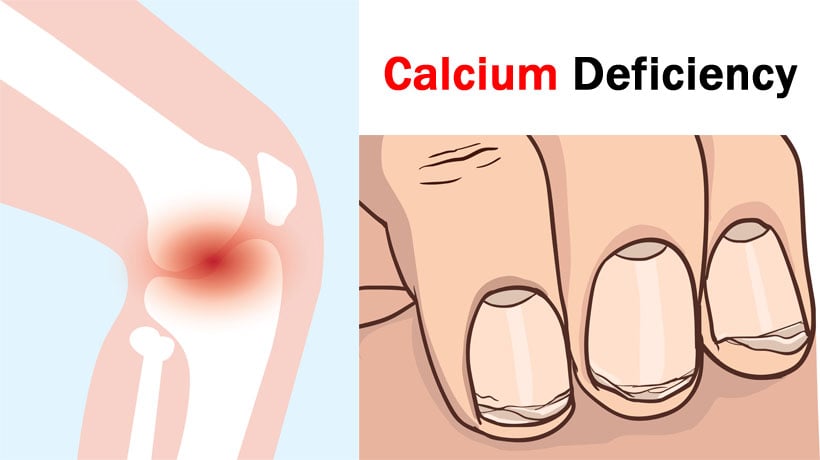A calcium deficiency (more formally known as hypocalcemia) is a condition where your blood doesn’t have enough calcium. It’s often caused by a lack of vitamin D, although certain medications and pre-existing medical conditions (like a low-functioning thyroid) can also be culprits. While it’s important to consult your doctor for a formal diagnosis, the following signs could indicate that you might be suffering from this condition.
Dry skin
If you’ve been dealing with hypocalcemia for an extended period of time, your skin might develop a scaly or flaky exterior. Calcium is needed for basic cell functions, so a lack of it will affect your skin and even your hair, making them thin, dry, fragile and brittle.
Muscle cramps
The calcium in your blood is ionized, meaning it carries a charge. If it gets too low it can disrupt your nervous system and affect how well your body and cells function. You might notice small cramps and muscle spasms or tingles in your fingers, mouth or feet.
Fatigue
Constant inexplicable drowsiness might also be a sign that you’re not getting all the nutrients you need. If your lethargy is coupled with a lack of appetite and a change in attitude veering apathetic, it could be worth getting checked.
Low vitamin D
Vitamin D is a key component when it comes to your body’s ability to absorb calcium. If you already know that you struggle with your levels of this nutrient, it wouldn’t hurt to also get your calcium levels checked.
Confusion
Memory loss, delirium and depression can all be symptoms of a calcium deficiency because, over time, it can have an effect on your brain and neurological pathways.
Weak bones
From brittle nails to fractured bones, you might notice that your skeletal frame feels more delicate than usual. A lack of calcium can lead to more serious conditions such as osteoporosis or increase your risk of tooth decay over time.
There is a rich supply of calcium in dairy products and even foods like broccoli, oranges, leafy greens, almonds … the list is quite extensive. Because calcium-rich foods are so readily available, it’s rare for a calcium deficiency to be a result of your calcium intake – at least in today’s society. If you notice that you possess a majority of these symptoms over a substantial period of time and they don’t go away by adding more calcium to your diet, you might be suffering from a calcium deficiency and it’s important to see your doctor to find out what else might be going on.
Sources:
April Kahn, A. G. (2017, August 25). Hypocalcemia (Calcium Deficiency Disease). Retrieved March 2018, from Healthline: https://www.healthline.com/health/calcium-deficiency-disease#1
Gardner, A. (2017, February 13). Could You Have a Calcium Deficiency? Retrieved March 2018, from Health: http://www.health.com/osteoporosis/calcium-deficiency
Lewis, J. L. (2018). Hypocalcemia (Low Level of Calcium in the Blood). Retrieved March 2018, from Merck Manual: https://www.merckmanuals.com/home/hormonal-and-metabolic-disorders/electrolyte-balance/hypocalcemia-low-level-of-calcium-in-the-blood
Medicine Net. (1996-2018). Medical Definition of Calcium deficiency. Retrieved March 2018, from Medicine Net: https://www.medicinenet.com/script/main/art.asp?articlekey=2576
UHN Staff. (2017, December 04). 21 Calcium Deficiency Symptoms That Will Surprise You. Retrieved March 2018, from University Health News Daily: https://universityhealthnews.com/daily/nutrition/21-calcium-deficiency-symptoms-that-will-surprise-you/



